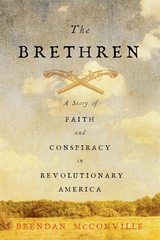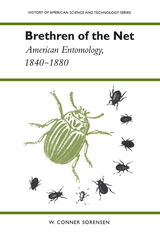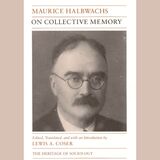
The dramatic account of a Revolutionary-era conspiracy in which a band of farmers opposed to military conscription and fearful of religious persecution plotted to kill the governor of North Carolina.
Less than a year into the American Revolution, a group of North Carolina farmers hatched a plot to assassinate the colony’s leading patriots, including the governor. The scheme became known as the Gourd Patch or Lewellen Conspiracy. The men called themselves the Brethren.
The Brethren opposed patriot leaders’ demand for militia volunteers and worried that “enlightened” deist principles would be enshrined in the state constitution, displacing their Protestant faith. The patriots’ attempts to ally with Catholic France only exacerbated the Brethren’s fears of looming heresy. Brendan McConville follows the Brethren as they draw up plans for violent action. After patriot militiamen threatened to arrest the Brethren as British sympathizers in the summer of 1777, the group tried to spread false rumors of a slave insurrection in hopes of winning loyalist support. But a disaffected insider denounced the movement to the authorities, and many members were put on trial. Drawing on contemporary depositions and legal petitions, McConville gives voice to the conspirators’ motivations, which make clear that the Brethren did not back the Crown but saw the patriots as a grave threat to their religion.
Part of a broader Southern movement of conscription resistance, the conspiracy compels us to appreciate the full complexity of public opinion surrounding the Revolution. Many colonists were neither loyalists nor patriots and came to see the Revolutionary government as coercive. The Brethren tells the dramatic story of ordinary people who came to fear that their Revolutionary leaders were trying to undermine religious freedom and individual liberty—the very causes now ascribed to the Founding generation.

Draws together information from diverse sources to illuminate an important chapter in the history of American science
Sorensen asks how it came about that, within the span of forty years, the American entomological community developed from a few gentlemen naturalists with primary links to Europe to a thriving scientific community exercising world leadership in entomological science. He investigates the relationship between American and European entomology, the background of American entomologists, the implications of entomological theory, and the specific links between 19th-century American society and the rapid institutional growth and advances in theoretical and applied entomology.
By the 1880s the entomologists constituted the largest single group of American zoologists and the largest group of ecologists in the world. While rooted in the British natural history tradition, these individuals developed a distinctive American style of entomological investigation. Inspired by the concept of the balance of nature, they excelled in field investigations of North American insects with special emphasis on insect pests that threatened crop production in a market-oriented agriculture. During this period, entomologists described over ten times as many North American insect species as had been previously named, and they consolidated their findings in definitive collections. Employing evolutionary theory, they contributed to the growing understanding of insect migration, mimicry, seasonal dimorphism, and the symbiotic relationship of plant and animal species. Americans also led in the revision of insect taxonomy according to the new principles. Their employment of entomological findings in the practical control of agricultural pests set new standards worldwide. Initially ridiculed as eccentric bug hunters, American entomologists eventually achieved stature as agricultural advisers and as investigators into the origin and nature of life.
Based primarily on the correspondence of American entomologists, Brethren of the Net draws together information from diverse sources to illuminate an important chapter in the history of American science.
READERS
Browse our collection.
PUBLISHERS
See BiblioVault's publisher services.
STUDENT SERVICES
Files for college accessibility offices.
UChicago Accessibility Resources
home | accessibility | search | about | contact us
BiblioVault ® 2001 - 2024
The University of Chicago Press









